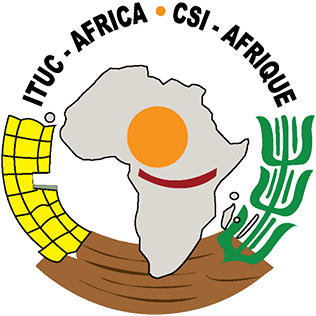By Christian Appolos, Abuja
The African Regional Organisation of the International Trade Union Confederation (ITUC-Africa), representing 18 million workers across 52 African nations, has issued a powerful statement urging FIFA to confront Saudi Arabia over its human and labour rights abuses, especially against African migrant workers.
In a detailed letter addressed to FIFA President Gianni Infantino, ITUC-Africa’s General Secretary Akhator Joel Odigie expressed grave concerns about FIFA’s decision to effectively greenlight Saudi Arabia’s bid to host the 2034 World Cup. Highlighting Saudi Arabia’s long history of labour exploitation and human rights violations, Odigie called on FIFA to enforce stricter measures to ensure migrant workers’ protection.
“By turning a blind eye to the Kingdom’s labour abuses, FIFA sends a chilling message: that the exploitation of African workers is acceptable as long as it serves FIFA’s financial interests,” the letter stated.
The letter detailed harrowing testimonies from African migrant workers who have suffered under Saudi Arabia’s notorious kafala system. This system ties workers to employers, granting employers near-total control over workers’ legal and employment statuses. It has been widely criticized as a tool for exploitation, enabling forced labour, wage theft, and physical abuse.
Some of the chilling testimonies include a worker from Ethiopia who was forced to work long hours without pay for six months, facing threats of deportation for any resistance; a Kenyan worker locked in a windowless basement and physically assaulted for demanding overdue wages; and a Nigerian worker tricked into grueling, unpaid labour with no access to proper food or rest.
These accounts echo findings in the 2023 Global Slavery Index, which ranked Saudi Arabia among the nations with high prevalence of modern slavery.
Despite Saudi Arabia’s troubling track record, FIFA’s internal report on the Kingdom’s readiness to host the World Cup gave a glowing 4.2 out of 5 rating. However, ITUC-Africa criticized the report for excluding the voices of organizations that represent migrant workers, calling it “an exercise in self-praise rather than an objective appraisal.” FIFA’s own bidding principles mandate respect for internationally recognized human rights. Yet, ITUC-Africa contends that FIFA’s actions contradict its stated values by prioritizing financial interests over the dignity of workers.
To ensure justice for workers, ITUC-Africa has urged FIFA to abolish the kafala system, enforce fair wages and safe working conditions, establish an independent monitoring body for World Cup preparations, and protect workers’ rights to unionize and report abuses without fear of reprisal. The organization insists that human rights reforms should be a non-negotiable criterion for hosting the tournament, with Saudi Arabia submitting regular progress reports on its reforms.
ITUC-Africa has pledged to mobilize global solidarity to amplify its call for justice. The organization emphasizes that FIFA must decide whether it stands with human rights advocates or allows exploitation to mar the world’s most celebrated football event.
“Hosting the World Cup is a privilege that must not come at the expense of human dignity,” Odigie concluded.
As Saudi Arabia gears up to host the 2034 World Cup, the question looms: will FIFA choose profit over principles, or will it rise to the occasion and champion the rights of millions of voiceless workers?






























